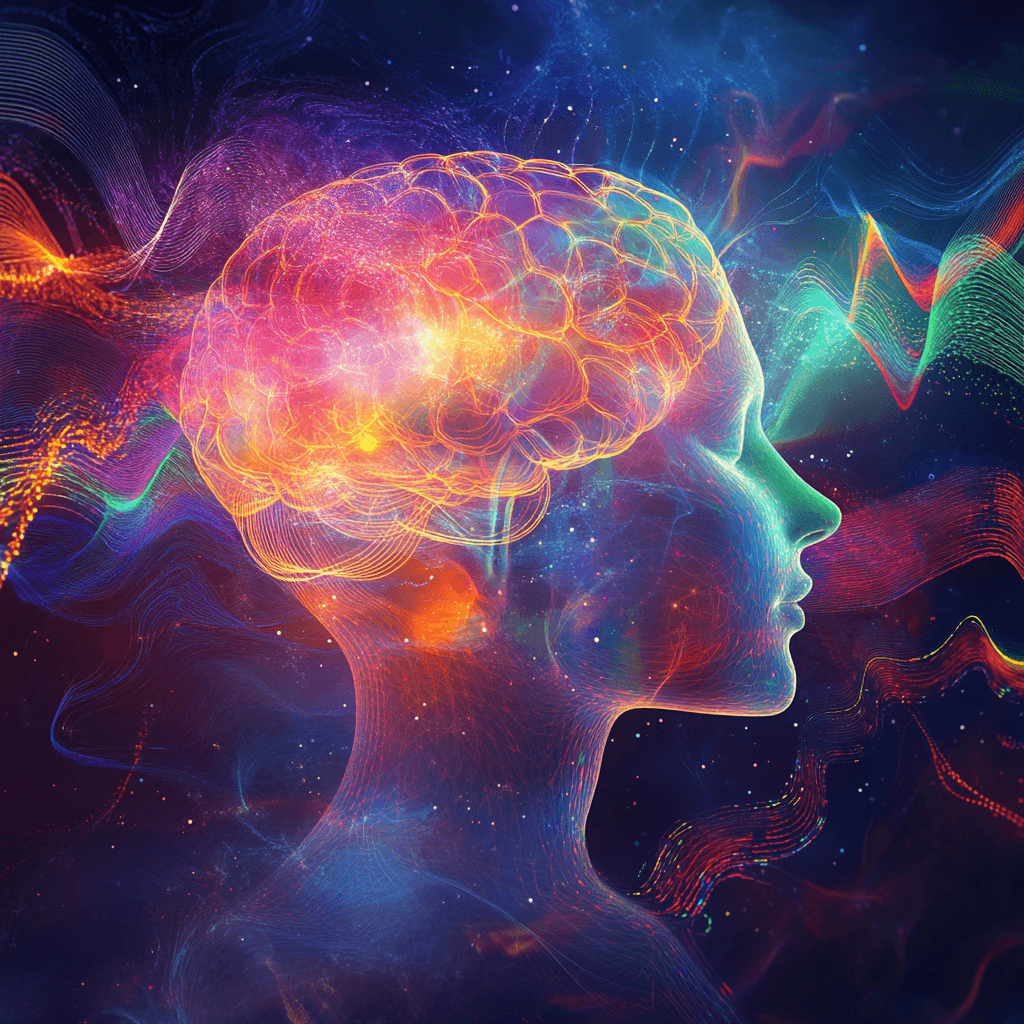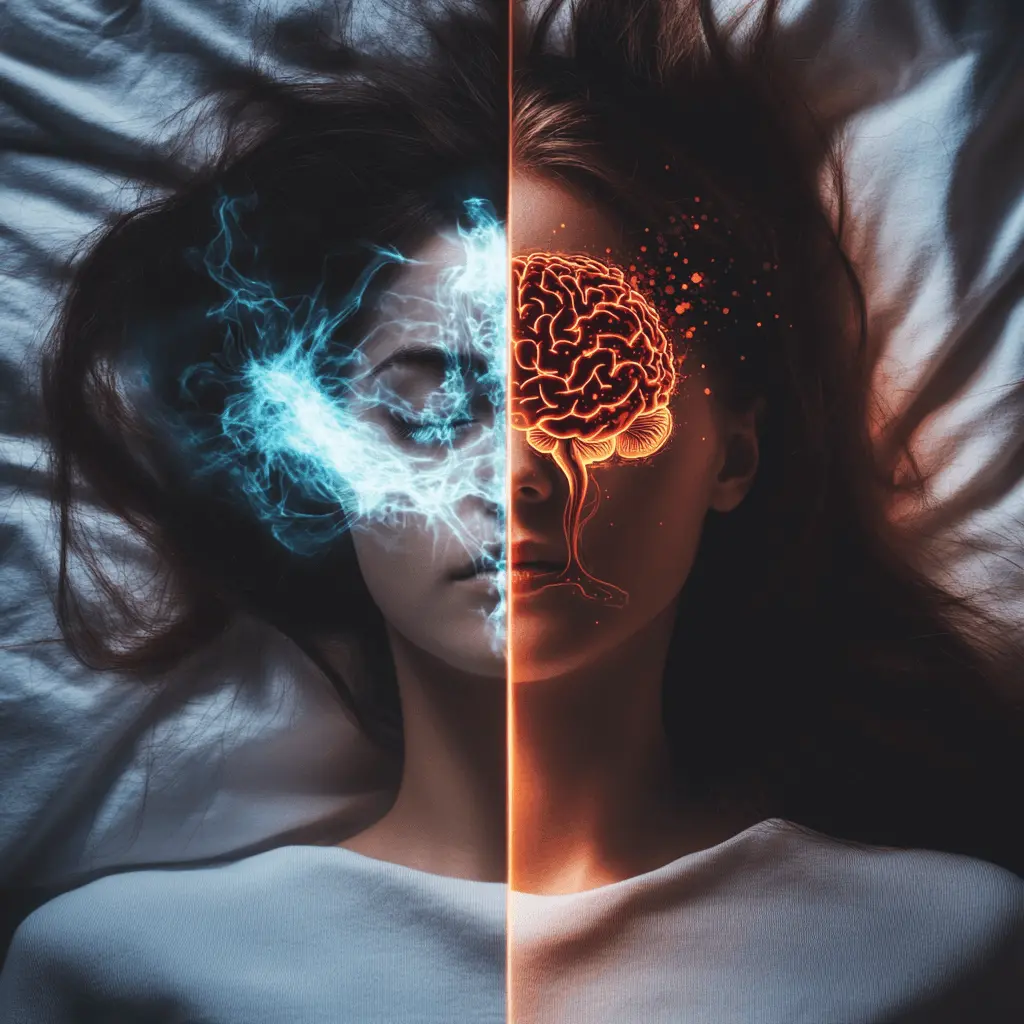Sleep is one of the most natural human behaviors yet also one of the most scientifically complex. Every night, our bodies and brains enter a carefully orchestrated state that is essential for mental clarity, physical recovery, emotional balance, and long-term health. But what really happens when we drift off to sleep? And how can we harness both the nature and science of sleep to enhance our well-being?
In this blog post, we’ll explore the fascinating biology and neuroscience behind sleep, uncover how it affects your mind and body, and offer practical tips backed by both nature and research to help you sleep better and live healthier. Whether you’re struggling with sleepless nights or simply want to optimize your rest, understanding the powerful intersection between natural rhythms and scientific insights is the first step.
The Biological Nature of Sleep
Sleep is not just a passive state of rest—it’s a deeply biological process rooted in evolution, shaped by nature, and essential to survival. Our bodies are hardwired to follow natural rhythms that signal when it’s time to rest and when it’s time to wake. Understanding these biological foundations can help us better align our lifestyles with the natural flow of sleep.
1. Circadian Rhythm: Your Internal Body Clock
At the heart of the biology of sleep is the circadian rhythm, a 24-hour internal clock that governs sleep-wake cycles, body temperature, hormone release, and other vital functions. Controlled by the suprachiasmatic nucleus (SCN) in the brain’s hypothalamus, this rhythm responds primarily to light and darkness in our environment.
- When the sun rises, light enters your eyes and signals your SCN to suppress melatonin, making you feel alert.
- As night falls, darkness triggers melatonin production, preparing your body for rest.
- Disruptions to your circadian rhythm—like jet lag, shift work, or excessive screen use—can lead to poor sleep and health issues.
2. Melatonin: The Sleep Hormone
Melatonin is a natural hormone produced by the pineal gland in response to darkness. Often called the “hormone of darkness,” it plays a critical role in promoting sleep by signaling to your body that it’s time to wind down.
- Melatonin levels typically start rising in the evening, peak in the middle of the night, and taper off by morning.
- Natural melatonin production can be enhanced by reducing exposure to blue light and maintaining a consistent sleep routine.
- Supplements are available, but your body is best supported when melatonin is regulated naturally.
3. The Evolutionary Purpose of Sleep
From an evolutionary standpoint, sleep may seem risky—being unconscious for several hours could make early humans vulnerable to predators. Yet, the fact that sleep is universally preserved across species suggests it serves an essential function.
- Sleep conserves energy, aids in cellular repair, and allows the brain to consolidate memories and process emotions.
- Studies show even insects and reptiles follow basic sleep-wake cycles, hinting at sleep’s deep biological roots.
- Evolution has shaped sleep to occur in safe, quiet environments—reinforcing the need for a calm sleep setting.
4. Natural Sleep Patterns in Humans and Animals
Sleep varies across species, but humans are monophasic sleepers, meaning we typically sleep in one long stretch per 24-hour period. However, natural human sleep has also been shown to follow biphasic patterns—including a short afternoon rest (like the siesta culture).
- Animals like cats and dogs are polyphasic, sleeping in multiple short bursts.
- Studying animal sleep patterns helps researchers understand how sleep has evolved and how it functions in different biological systems.
- In humans, respecting your natural rhythm—by sleeping when your body signals fatigue—can significantly improve sleep quality.

The Science Behind Sleep Cycles
Sleep isn’t a uniform state it’s a complex, cyclical process your brain and body go through multiple times each night. This cycle is divided into several stages, each with unique characteristics and functions. Understanding how these stages work, and how they repeat throughout the night, can reveal why quality sleep is just as important as quantity.
1. The Four Stages of Sleep: NREM and REM
Sleep is broadly divided into two main types: Non-Rapid Eye Movement (NREM) and Rapid Eye Movement (REM) sleep. Each night, your body moves through four sleep stages in a specific sequence:
- Stage 1 (NREM): A light transitional phase between wakefulness and sleep. Muscle activity slows, and you may experience slight twitches.
- Stage 2 (NREM): Your body temperature drops, heart rate slows, and brain wave activity begins to change. This stage makes up about 50% of your total sleep.
- Stage 3 (NREM): Also called deep sleep or slow-wave sleep. This is the most restorative phase, where the body repairs tissue, strengthens the immune system, and consolidates physical energy.
- Stage 4 (REM): Brain activity spikes, closely resembling wakefulness. This is when dreams typically occur, and it plays a crucial role in memory consolidation, creativity, and emotional processing.
Each full sleep cycle lasts about 90–110 minutes, and you typically go through 4–6 cycles per night.
2. Brain Waves and Electrical Activity During Sleep
As you move through different sleep stages, your brain emits varying types of electrical activity, measured in brain waves:
- Beta waves (wakefulness)
- Alpha waves (relaxed, drowsy state)
- Theta waves (Stage 1 & 2 light sleep)
- Delta waves (Stage 3 deep sleep)
REM sleep produces mixed frequency waves similar to waking activity, reflecting the brain’s heightened internal processing during this phase. These shifts are crucial for understanding how sleep supports learning, emotional health, and physical recovery.
3. Sleep Architecture: How the Night Is Structured
The order and duration of each sleep stage throughout the night is known as sleep architecture. In healthy individuals, the night typically begins with deep NREM sleep and transitions to longer REM stages as the night progresses.
- Earlier cycles are dominated by deep sleep, which is critical for physical recovery.
- Later cycles contain longer REM periods, which are important for cognitive functions and emotional balance.
- Fragmented or disrupted sleep can interrupt this structure, leading to poor rest—even if the total sleep time seems adequate.
Tracking your sleep architecture with a smart device or sleep study can reveal patterns that affect how rested you feel.

4. What Disrupts Healthy Sleep Cycles
Several factors can interfere with normal sleep cycles, reducing the time spent in restorative stages:
- Sleep disorders (like insomnia or sleep apnea)
- Excessive screen time and blue light exposure before bed
- Caffeine and alcohol, which alter the time spent in REM and deep sleep
- Stress and anxiety, which can increase nighttime awakenings and delay REM sleep onset
Maintaining consistent sleep routines, reducing light exposure, and managing stress are all ways to protect your natural sleep cycle.
By understanding your sleep cycles and how your body naturally navigates them, you can take more informed steps toward improving the quality, not just the quantity, of your rest.
The Effects of Sleep on the Mind and Body
Sleep isn’t just a break from the day—it’s a powerful tool your body uses to restore, repair, and recharge. During sleep, critical processes occur that influence everything from your mood and memory to your immune function and metabolism. Understanding these effects reveals just how essential quality sleep is for both mental and physical health.
1. Sleep and Memory Consolidation
One of the most well-documented cognitive benefits of sleep is its role in memory processing and learning. While you sleep particularly during REM and deep NREM stages—your brain:
- Transfers information from short-term to long-term memory.
- Strengthens neural connections related to what you learned that day.
- Clears out unimportant or outdated data to make room for new learning.
This is why students and professionals who prioritize good sleep often retain information better and think more clearly.
2. Emotional Regulation and Mental Health
Sleep has a profound impact on mood, stress resilience, and emotional balance. Insufficient or poor-quality sleep disrupts the brain’s ability to regulate emotions, leading to:
- Increased anxiety, irritability, and mood swings.
- Heightened reactivity to negative stimuli.
- Greater risk of developing mental health disorders like depression or generalized anxiety disorder.
REM sleep plays a particularly important role in emotional processing, helping your brain make sense of the day’s experiences and reducing emotional intensity.
3. Physical Recovery and Immune Support
During deep sleep, your body is hard at work repairing tissues, building muscle, and reinforcing the immune system.
- The pituitary gland releases growth hormone, essential for cell repair and regeneration.
- Your body produces and releases cytokines, proteins that help fight infection and inflammation.
- Chronic sleep deprivation has been linked to weakened immunity, making you more susceptible to illness.
This regenerative process is why elite athletes often prioritize sleep as a core component of training and recovery.
4. The Consequences of Sleep Deprivation
Failing to get enough quality sleep can quickly take a toll on your mind and body. Short-term effects may include:
- Brain fog, difficulty concentrating, and memory lapses.
- Slowed reaction times (comparable to alcohol impairment).
- Increased cravings for sugar and processed foods due to hormonal imbalances.
Over time, chronic sleep deprivation can lead to serious health consequences, such as:
- Cardiovascular disease
- Obesity and metabolic syndrome
- Type 2 diabetes
- Weakened immune response
In short, sleep isn’t optional it’s foundational to physical and mental performance.
Sleep acts as a reset button for your entire system. By respecting its power, you can sharpen your mind, protect your health, and improve your overall quality of life.

Common Sleep Disorders and What Science Says
Even with the best intentions, many people struggle to get quality sleep due to underlying sleep disorders some of which go undiagnosed for years. Understanding the most common sleep-related conditions and the science behind them can help you recognize the signs, seek appropriate treatment, and reclaim your rest.
1. Insomnia: The Chronic Sleepless Struggle
Insomnia is one of the most prevalent sleep disorders, affecting an estimated 10–30% of adults worldwide. It can be acute (short-term) or chronic (lasting over three months), and it’s often triggered by:
- Stress or anxiety
- Poor sleep hygiene
- Irregular sleep schedules
- Underlying health conditions
Research shows that cognitive behavioral therapy for insomnia (CBT-I) is more effective long-term than sleep medication. It targets the thought patterns and behaviors that interfere with sleep. Learn more about evidence-based treatments from the National Sleep Foundation.
2. Sleep Apnea: A Hidden Danger
Obstructive sleep apnea (OSA) occurs when the airway becomes partially or completely blocked during sleep, causing repeated pauses in breathing. Common signs include:
- Loud, chronic snoring
- Gasping or choking during sleep
- Excessive daytime fatigue
- Morning headaches
Untreated OSA has been linked to high blood pressure, heart disease, and stroke. A sleep study (polysomnography) can help diagnose the condition, and treatments may include CPAP therapy, lifestyle changes, or surgical interventions.
3. Restless Leg Syndrome (RLS)
Restless Leg Syndrome is a neurological disorder characterized by uncomfortable sensations in the legs, often described as tingling, crawling, or itching. These sensations typically worsen at night and improve with movement, making it difficult to fall or stay asleep.
Though the exact cause is unknown, studies suggest links to dopamine imbalance, iron deficiency, and certain chronic conditions. Treatment may involve lifestyle changes, supplements, or prescription medications.
4. Circadian Rhythm Disorders
These occur when your internal clock is misaligned with your external environment. Common types include:
- Delayed Sleep Phase Disorder (DSPD): Common in teens and night owls.
- Shift Work Sleep Disorder: Affects people who work night shifts or rotating schedules.
- Jet Lag Disorder: Caused by rapid travel across time zones.
Circadian rhythm disorders often respond well to light therapy, melatonin supplementation, and strict sleep-wake scheduling helping to re-sync your internal clock with the natural world.
If you suspect a sleep disorder is affecting your health or performance, consult a sleep specialist or consider a professional sleep study. Treating the root cause can transform not just your nights but your days too.
Tips to Improve Sleep Naturally and Scientifically
Whether you’re aiming to fall asleep faster, stay asleep longer, or wake up feeling truly refreshed, optimizing your sleep requires a balance of natural practices and science-backed strategies. Fortunately, there are several practical steps you can take to align your lifestyle with your body’s sleep biology and enhance overall sleep quality.
1. Build Consistent Sleep Hygiene Habits
Sleep hygiene refers to the behaviors and environmental factors that influence your sleep. Creating a consistent and calming bedtime routine signals to your body that it’s time to wind down.
- Go to bed and wake up at the same time every day—even on weekends.
- Avoid screens at least 60 minutes before bed to reduce blue light exposure.
- Limit caffeine and heavy meals in the late afternoon and evening.
- Practice relaxing activities like reading, light stretching, or meditation before bed.
These simple, science-supported habits can retrain your body’s natural rhythm and improve sleep quality over time.
2. Create a Sleep-Friendly Environment
Your bedroom should be a sanctuary for rest. Small environmental adjustments can significantly enhance your body’s ability to enter and maintain deep sleep.
- Keep the room dark, quiet, and cool (ideally around 65°F or 18°C).
- Use blackout curtains, white noise machines, or earplugs to block disturbances.
- Invest in a supportive mattress and pillows that align with your sleep position.
- Keep electronics out of the bedroom to reduce sleep-disruptive stimuli.
The science is clear: environmental cues play a critical role in regulating circadian rhythms and promoting high-quality sleep.
3. Support Natural Sleep Chemistry with Nutrition
What you consume throughout the day—especially in the evening—can either help or hinder your sleep. Certain foods and supplements support melatonin production and relaxation:
- Eat magnesium-rich foods like almonds, spinach, and bananas.
- Include tryptophan sources (e.g., turkey, oats, yogurt) to support serotonin/melatonin production.
- Avoid alcohol close to bedtime, which may reduce REM sleep and cause fragmented rest.
- Consider melatonin supplements if you’re dealing with circadian disruptions, such as jet lag—always consult your doctor first.
Hydration also matters: avoid drinking large amounts of water right before bed to minimize sleep interruptions.
4. Know When to Seek Professional Help
If you’ve tried improving your habits and still struggle with sleep, it may be time to consult a sleep specialist. Persistent issues like insomnia, snoring, excessive fatigue, or frequent waking may be signs of an underlying sleep disorder.
Diagnostic tools such as sleep tracking apps, wearable devices, or overnight sleep studies can provide data to guide medical evaluation. Early intervention can prevent long-term health consequences and drastically improve your quality of life.
Improving your sleep is one of the most powerful health upgrades you can make. By combining natural techniques with proven scientific insights, you can restore balance to your body’s internal clock, enhance your mental sharpness, and support lifelong vitality.

Sleep is far more than just a nightly pause it’s a dynamic, essential process driven by both natural rhythms and scientific complexity. By understanding the biological nature of sleep and the intricate science of sleep cycles, we gain the power to optimize how we rest, recover, and perform each day.
Whether you’re struggling with insomnia, seeking deeper sleep, or simply looking to boost your mental clarity and physical health, small changes—like improving your sleep hygiene, supporting your circadian rhythm, or seeking help for underlying disorders—can make a transformative difference.
Remember, great sleep isn’t a luxury; it’s a foundational pillar of a healthy, high-performing life. So take the time to harness the nature and science of sleep your body and mind will thank you for it.


